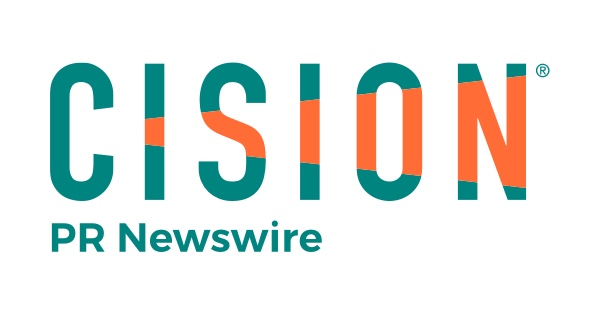NESS ZIONA, Israel and HYDERABAD, India, May 30, 2018 /PRNewswire/ —
Breeding high nutritional varieties of chickpea and pigeonpea just got easier. With new technology, genomic processes that could have taken years have been completed in just a few months. This has been possible by work of scientists from the International Crops Research Institute for the Semi-Arid Tropics (ICRISAT) headquartered in India in collaboration with NRGene , Israel, who have helped create multiple assembly lines of pigeonpea and chickpea genomes. This means scientists can not only better understand crop traits, they can also significantly speed up work on improved varieties.
With this technology from NRGene, ICRISAT has chickpea and pigeonpea genomes to a reference-level quality that researchers can use. This will help maximize favorable nutritional properties of these high-protein legumes.
“The developing world has long faced the pressures of food security with limited farmland,” says Dr. Rajeev K Varshney, Research Program Director, Genetic Gains, and Director, Center of Excellence in Genomics & Systems Biology, ICRISAT. “For effective use of genomics-assisted breeding, we need reference genomes of several varieties of a given crop. Therefore, new assemblies of chickpea and pigeonpea lines by NRGene and ICRISAT will allow our scientists and partners to better understand plant traits to breed more nutritional varieties.” ICRISAT in partnership with other institutions has already decoded and documented genomes of pigeonpea and chickpea (Nature Biotechnology 2013, Nature Biotechnology 2012).
Traditional methods would have required years to complete each individual assembly. NRGene’s DeNovoMAGIC™ 3.0 delivered multiple assemblies in a matter of months.
“While DeNovoMAGIC has been successfully deployed by the world’s leading seed companies and academic institutions, implementing this for organizations like ICRISAT enhances our mission of making an impact on the world food supply,” says Dr. Gil Ronen, CEO of NRGene. “Chickpea, pigeonpea, and other protein-rich legumes will be even more critical crops in the years to come, and we are glad that our technology can be used to improve the nutrition status of the world.”
Chickpea and pigeonpea have 15-22 grams of protein per 100 grams and are a critical food and nutrition source in India, Africa, and the Caribbean. India produces 64% of the world’s total chickpeas and 63% of the world’s pigeonpeas. However, protein hunger, an important aspect of malnutrition, continues to be a major concern in Asia.
The drylands, covering 55 countries in Asia and sub-Saharan Africa and inhabited by 2 billion people, 644 million of whom are poor, is most vulnerable to climate change with very little rainfall, degraded soils, and poor social infrastructure. ICRISAT through scientific research aims to find solutions for the nutrition security of people in these regions.
About NRGene
NRGene is a genomic big data company delivering cutting-edge software and algorithms to reveal the complexity and diversity of humans, plants and animals for supporting the most advanced medical research and sophisticated breeding programs. NRGene tools have already been employed by some of the leading seed companies worldwide as well as the most influential research teams in academia. www.nrgene.com
DeNovoMAGIC™ can assemble virtually any genome de novo. The unique assembly engine completes even the most challenging assembly within days of obtaining the raw sequence data, with outstanding results.
GOT NEWS? click here
Google News, Bing News, Yahoo News, 200+ publications
DeNovoMAGIC has successfully assembled genomes of many plants and animals, to the highest standards.
About ICRISAT
The International Crops Research Institute for the Semi-Arid-Tropics (ICRISAT) is a non-profit, non-political organization that conducts agricultural research for development in Asia and sub-Saharan Africa with a wide array of partners throughout the world. Covering 6.5 million square kilometers of land in 55 countries, the semi-arid tropics have over 2 billion people, and 644 million of these are the poorest of the poor. ICRISAT innovations help the dryland poor move from poverty to prosperity by harnessing markets while managing risks – a strategy called Inclusive Market-Oriented development (lMOD). ICRISAT is headquartered in Patancheru, Hyderabad, Telangana, India, with two regional hubs and six country offices in sub-Saharan Africa. It is a member of the CGIAR Consortium.
For ICRISAT’s scientific information see: http://EXPLOREit.icrisat.org
CGIAR is a global agriculture research partnership for a food secure future. Its science is carried out by 15 research centers who are members of the CGIAR Consortium in collaboration with hundreds of partner organizations. www.cgiar.org
The CGIAR Program on Grain Legumes and Dryland Cereals (GLDC), managed by ICRISAT with CGIAR partners, focuses on increasing productivity, profitability, resilience, and marketability of critical and nutritious grain legume and cereal crops in sub-Saharan Africa and South Asia. www.gldc.cgiar.org
ICRISAT CGIAR Contact
Jayashree Balasubramanian
[email protected]
+91-9840050444 (+5:30 GMT)
NRGene Contact
Amy Kenigsberg
K2 Global Communications
[email protected]
+1-913-440-4072 (+7 ET)
+972-9-794-1681 (+2 GMT)
SOURCE NRGene







